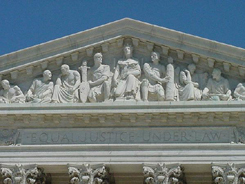
Do I really need a Lawyer?
This is the first question you should ask yourself. In some cases, you can handle the problem without hiring a lawyer. If the problem is small and can be handled without the advice of a lawyer, then you can usually find the right forms and resources to help you online and one of the many legal site. However, if the situation involves a major problem like being slapped with a lawsuit or charged with a crime, you probably need a lawyer.
What kind of Lawyer do I need?
A lot of lawyers specialize in one area of the law. General practitioners, however, have a wide range of matters that they handle. If your legal matter involves a specialized area of law like family, bankruptcy, taxation, or patent laws, then you need to contact a specialist. If you are dealing with a general matter, then a general practice lawyer should be able to help you. Make sure to ask your attorney whether he or she specializes in an area of law before you decide to hire them.
Where can I find an attorney?
There are many ways to find an attorney. You can find one on an online attorney directory where information is available about attorneys at their websites. Your state’s bar association will also have a referral service that can put you in touch with an attorney. Word-of-mouth and the phone book are the standard ways of finding an attorney.
How much do lawyers charge?
Attorney fees can cost a pretty penny depending on what type of case you have and how much time an attorney will spend on your case. There are several different types of fee arrangements, including hourly flat fees and contingent fees. Hourly fees are calculated by multiplying the amount of hours an attorney works on your case by the attorney’s hourly rate. Contingent fees are fees that allow the attorney to receive a certain agreed-upon percentage of any judgment amounts you receive. A fixed rate places a set price for the services an attorney will provide you with. Attorney fees are usually calculated without including court costs and filing fees that are usually paid upfront by the client. Always ask potential attorneys to explain their fees and billing practices prior to engaging their services.
Can I fire my attorney?
Remember that you are the boss when it comes to your attorney. You can fire your attorney at any time. If you are not satisfied with the work your attorney is doing for you, you are entitled to terminate his or her services; however, you must pay for services rendered up to the date of termination. Finally, finding an attorney can be a daunting task, so make sure you’re prepared before you start the process. There are many places where you can find out more information about attorneys prior to contacting them. One such place is on the Internet, where a lot of attorneys have websites that provide personal as well as professional information. Good Luck!
Attorney fees are generally a matter of agreement between the client and the attorney. There are no recommended fee schedules. While fees vary from attorney to attorney, the basic ingredient is the amount of time spent on a particular case. Clients are often unaware that the advice given to them in a few minutes or a few pages of a document prepared for them are products of much time and effort by the attorney and often by others in his/her office, such as legal assistants and secretaries.
How do Lawyers Compute Their Fees?
There are four usual methods of calculating legal fees: (1) Hourly fee arrangements, (2) Contingency fee arrangements, (3) Flat fee arrangements, and (4) Percentage fee arrangements. Hourly fee arrangements and charges depend on the circumstance of the case and the experience and expertise of the lawyer. Under this arrangement, the client is generally responsible for the out-of-pocket expenses (filing fees, transcripts, sheriff's fees) as well as for the time spent performing the legal work (meetings, research, drafting documents, phone calls). Contingency fee arrangements are used primarily in personal injury and collection cases. They are not allowed in criminal or divorce matters. The lawyer receives no fee unless money is recovered for the client. If money is recovered, the lawyer receives an agreed-upon percentage of the recovery, generally ranging from 25 to 45 percent. The percentage often depends upon the amount of work anticipated, the probability of recovery of witness fees, and the complexity of the issues involved. If there is an appeal, the percentage can be higher. Contingency fees can be compiled prior to the conclusion of the matter, and the client may be responsible for all out-of-pocket expenses such as filing fees and depositions. If an attorney is dismissed by the client prior to the conclusion of the matter, the client may be responsible for payment of a reasonable fee for services rendered by the attorney. All contingency fee agreements must be in writing and signed by both the attorney and the client. In flat fee arrangements, the attorney will render a specific legal service to the client for a fixed sum of money. Criminal defense matters or the preparation of a simple will are often the subject of a flat fee arrangement. If there are unexpected complications which arise, it is sometimes necessary to modify such an arrangement. Percentage fee arrangements are sometimes used in the administration of an estate or in the selling or purchasing of a home. The fee would then be a fixed percentage of the estate or the value of the property being transferred.
When Should You Discuss Fees?
The lawyer and the client should discuss the cost of the legal services at the initial meeting. The lawyer may not be able to forecast the exact amount of the time and effort required, but should be able to give the client an estimate based upon the information which the client can provide and the lawyer's past experience. The client should not hesitate to raise the issue of legal fees at any time with his or her attorney. The client has a right to a detailed billing showing the lawyer's time and efforts in those instances where the fee is based upon an hourly rate.
Who is Responsible for the Fees?
The client must pay the fees and expenses. In some cases that go to court, the judge may award a partial or full fee to be paid by the opposing side. This does not release the client from the obligation to pay the attorney.
Most cases require a retainer fee or deposit to apply to the lawyer's expenses or future charges. Clients should expect to pay when they retain an attorney. The attorney will generally bill on a monthly basis and the client is expected to remain current. A contingency fee case is billed upon completion of the case, except for expenses which may have been incurred.
Can Legal Fees be Limited?
The client should discuss legal fees and related costs during the initial meeting and consider a written fee agreement. The client should ensure that he or she is totally familiar with the basis on which the fees will be calculated. If the lawyer's work is concluded and the fees required are less than the amount of the retainer, the balance will be refunded. Being fully prepared with documents and information at the initial meeting can often reduce the time that an attorney must spend seeking that information. The client should be as brief as possible in all communications and refrain from frequent phone calls for which he or she will be billed. The client should always communicate openly and honestly with the attorney. Failure to do so can often result in added expenses.
 Print
Print Email
Email







